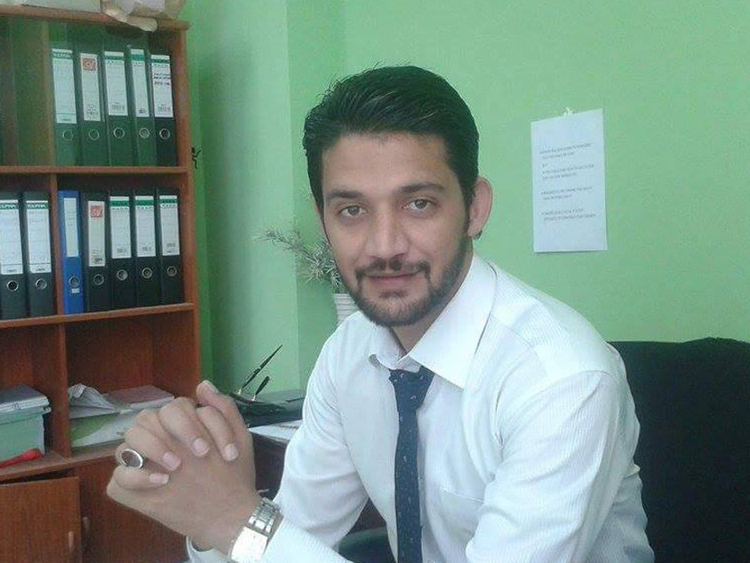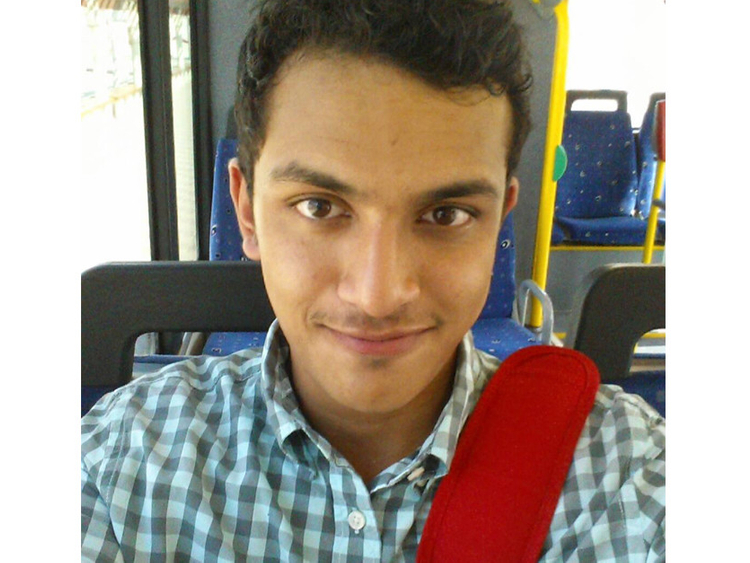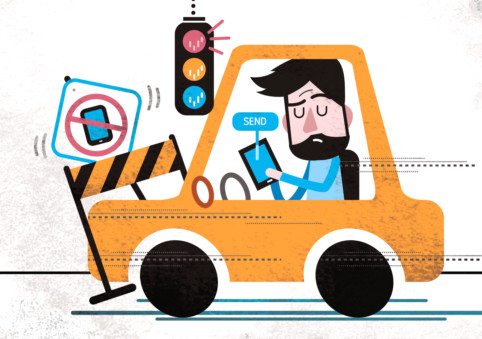
According to a Gulf News report published in 2014, one in three UAE drivers are ‘distracted’ on the road, and 43 per cent of motorists aged 18 to 24 state that their attention is not always focused on driving. The most common driving distraction is the use of mobile phones, but eating, grooming, and smoking can also affect attention. What’s the best way to deter distracted driving? Better training at driving schools? Harsher punishments? Can technology help too? Readers debate.
Habits
Unlearn distracted driving behaviour
I have been driving on Dubai roads for the past 15 years now, and I have seen the changing trends and behaviours on the road. The more experienced a driver is, the more confidence or over-confidence he has, which leads to engaging in distracted driving. When anyone gets a new license, he is extra careful and doesn’t attend to calls, eat, smoke, or even talk to fellow passengers while driving. As the years pass, those cautionary measures fade, and it becomes difficult to change people’s years’ old habits. Technology, as always, can help. If mobile phones have airplane mode, they can also have the option of ‘driving mode’, which automatically diverts calls to voicemail.
Besides this, we must first and foremost educate ourselves in avoiding any kind of distraction while driving. Children adapt fast, and they should be shown the cons of careless driving early in school. They can even be taught to watch out for distracted driving habits in their parents so that they can warn them. Sometimes drivers need passengers to keep them alert. When children are taught safe driving practices, these will be instilled in their minds. By the time they grow up and drive, the inculcated training can bring positive change to society’s driving culture in general.
From Ms Anjali B. Ramchandani
Head of pricing and international networking at a logistics firm based in Dubai
Awareness
Drivers must know human cost of actions
Often, it is students and young motorists who use their smartphones while driving. So, it would be best to educate them to minimise usage while driving by arranging seminars and workshops in educational institutions. At driving schools, lessons should be introduced that discuss the importance of their lives and the lives of others. During practice sessions, instructors should look out for behaviours that indicate a distracted driver, and strict evaluation process by police should be implemented for the final test.
In general, public awareness is also necessary and can be spread through campaigns on social media and radio. We must properly educate people about the human cost of their actions. The Roads and Transport Authority (RTA) have set up signboards along the highway that warn of dangerous driving, and the same could be done for distracted driving with the message, ‘Is a phone call or text worth your life?’
Companies should also be educated on this issue, especially those who have transportation services. Most often it is the companies themselves who call drivers to give tasks while they are on the road, and the staff cannot deny calls.
Last but not least, police patrol could be increased to deal with violators, with authorities patrolling in private vehicles so they can go undetected. Video cameras can also monitor roads and areas, and to ensure that violators will not repeat these acts, heavy fines, black points and even temporary vehicle confiscation can be implemented. In the United Kingdom, new proposals call for harsher penalties, and drivers who kill someone while using a mobile phone behind the wheel could face life in prison. This tough measure shows the seriousness of distracted driving and the risk it poses to pedestrians and motorists.
From Mr Fahad Liaqat
Chemical engineer based in Sharjah
Technology
Car safety innovations should be mandatory
In the past few years, there has been an increase in vehicle accidents in the UAE. After some research, I found out that the common cause of most of these accidents are drivers who are distracted because they’re using their cellphones to text or check social media, eating or smoking, listening to loud music, all while speeding too.
We are in a time when technology has reached new heights. As a result of increasing accidents day by day, major car manufacturers have started research not just to protect passengers, but minimise accidents. As a result, they have developed airbags, parking sensors, speed limit control sensors, and now even facial recognition infrared cameras to detect drivers’ movements while driving, warning them of potential dangers.
In 2007, Volvo was the first car manufacturer to introduce such an alert control system. By using cameras, sensors, and a control unit, the technology assesses the car’s movement, and sound an alert if there is any indication that there is a drop of control in driving. Other car manufacturers have begun using their own systems to minimise the danger for drivers and passengers. Currently, most of the vehicles in the UAE have this technology, but there are still some old cars on the road without any of these safety features. Implementing new rules on driving or having stricter rules can be a short-term answer for the accident problem, because it forces people to pay fines, but that won’t reverse the harm caused by collisions after they happened. The most efficient and best way to minimise accidents in the UAE is implementing new laws on importing vehicles with standard of technology that helps protect driver and passengers. Additionally, we must find a better solution to upgrade current vehicles on the roads with the latest technology available.
From Mr Thuan Rasheen Noor Al Deen
Security personnel based in Abu Dhabi
Standards
Current systems must be given updates to keep up with new distractions
The advent of social media and ever increasing variety of mobile apps has clearly brought people closer together and made our lives easier. An unfortunate outcome of the constant need to be connected is that people are no longer focused on the world around them as much as the LCD screen in their hand.
We see it in the malls with people not watching where they’re going, in the cinema, unable to disconnect for two hours, and most alarmingly, when they’re driving along the highway at 120 kilometres per hour. Road safety has always been a major issue (not just in the UAE) and there’s clearly a case for the systems in place to be given an update to keep up with this new distraction.
Sadly, more education isn’t always an effective means of changing how people behave. Globally, drink driving has been an issue for far longer, yet despite every country in the world stressing on the consequences to new drivers, it is still the cause of so many deaths.
Ideally, car and mobile manufacturers will eventually introduce standard systems, which use the car and phone’s GPS to block everything other than calls once the vehicle moves over a certain speed or to override forcing connection to the in-car system. But until there’s enough pressure from governments or on a social level, I wouldn’t expect to see them spending millions on the research and development or implementation of these.
In the meantime, police should be able to block data on the mobile account of anyone caught using their phone whilst behind the wheel other than via a hands-free system. This would allow the offender to make and receive calls (thus still able to work), but not access any social media channels, emails, browse the internet or videos until back in a Wi-Fi covered area. Entering their details into a system banning the purchase of a new number would also be required.
Games not requiring connection would still be an issue, but if someone can’t resist playing Candy Crush for 10 minutes, then perhaps they need a stronger dose of reality such as a license suspension or enforced community service!
From Mr Scott Milne
Business development manager based in Dubai











